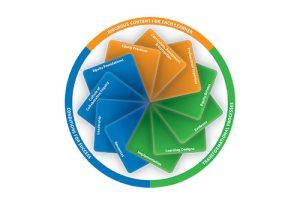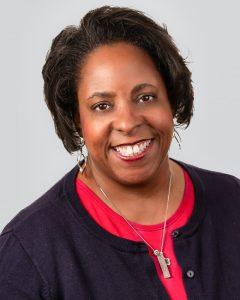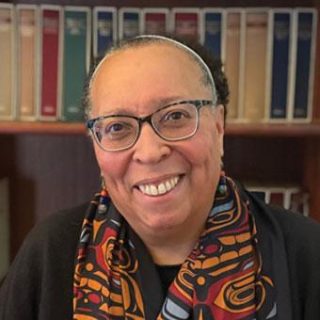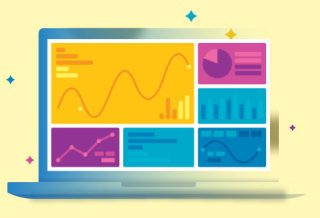NETWORKS AT WORK
Networks use standards to drive continuous improvement
By Michelle Bowman
Categories: UncategorizedOctober 2022
Professional learning is all about continuous improvement. That’s one of the reasons the latest iteration of Standards for Professional Learning is depicted in a circle: The visual reflects the cycles of continuous improvement embedded in many of the standards and essential for effective implementation (Learning Forward, 2022a).

Similarly, the professional learning networks that we lead exemplify continuous improvement as a necessary, systemic process that leads to changes in practice and organizational improvement. This is not a coincidence. Our network structures and processes are guided by Standards for Professional Learning and the research and best practices that informed them.
As part of our ongoing commitment to modeling and explaining the use of the standards, this column in The Learning Professional will highlight how Learning Forward networks embody and enact Standards for Professional Learning.
Learning through networks
Learning Forward networks are collaborative structures that build capacity and leadership among educators working at state/province, system, and school levels to create policies and practices for effective professional learning. Networks employ equity-centered improvement theories and practices. We leverage learning teams to design and implement professional learning interventions using disciplined inquiry and problem-solving that lead to improved practice through continuous improvement.
Network teams use processes that include:
- Understanding the context, including the system that produces inequitable outcomes and the opportunities and assets of the community to which the system belongs, and identifying problems of practice to target;
- Developing hypotheses for addressing the problems of practice, based on an equity-centered working theory of improvement, and designing a plan to test those hypotheses using high-quality learning content and strategies;
- Executing a test of the hypotheses and collecting data to measure how the test was implemented and whether improvements occurred;
- Analyzing the data to determine whether the actions and outcomes that occurred were consistent with or deviated from what was predicted; and
- Deciding what to do next based on what was learned.
Continuous improvement in Ohio
Here is an example of how Learning Forward’s networks team is helping facilitate standards-aligned continuous improvement in Ohio. In collaboration with the Ohio Department of Education’s Office of Approaches to Teaching and Professional Learning, the Learning Forward networks team supports the state literacy network. The network’s problem of practice arose after recently enacted state legislation provided new guidelines centered on best practices in literacy instruction, screening, intervention, and remediation procedures, and a certification process reflected in dyslexia support laws. The problem: Not all districts and schools have the tools needed to implement the dyslexia support described in the law.
To address this, all districts and schools will be equipped to meet the literacy needs of all learners they serve and provide early prevention and intervention “for children with dyslexia and children displaying dyslexic characteristics and tendencies using structured literacy” (Ohio Department of Education, 2022).
Organized into three teams, network participants articulated three goals for developing and testing protocols or tools that districts can use to implement requirements in the law. Using continuous improvement cycles, teams will address their defined problems by developing, testing, and refining promising solutions or change ideas specific to their local context. The teams use data to assess whether they are making progress toward their targeted outcomes.
In using continuous improvement cycles, the network is applying Standards for Professional Learning in multiple ways. First, state education agency leaders in the network are attending to critical actions consistent with the key roles and responsibilities outlined in Action Guide for the State Commissioner/Minister of Education (Learning Forward, 2022b), a resource designed to help state-level leaders with standards implementation. For example, as they take actions to inform talent development initiatives, the leaders are committed to “advocat[e] for inclusive learning practices for each learner in any learning environment within the system” (Learning Forward, 2022b, p. 5).
Second, the literacy network team members’ work prioritizes the Curriculum, Assessment, and Instruction standard, which specifies that effective professional learning incorporates high-quality curriculum and instructional materials, supports assessment of student learning, and develops educators’ understanding and implementation of curriculum. The protocols and tools they are developing will help educators with “building their capacity to understand curriculum and instructional materials, aligned assessments of and for learning, and teaching strategies in the classrooms they influence or lead,” as outlined in the standard (Learning Forward, 2022a, p. 22).
It’s important to note that the standards are intentionally connected to one another, so the work the network is doing to address the Curriculum, Assessment, and Instruction standard also addresses other standards. For example, the Equity Practices standard is closely related, as it guides professional learning leaders to address how they will support educators to evaluate, learn, and implement instructional materials “in ways that are culturally relevant and accessible to every learner” (Learning Forward, 2022a, p. 23).
Third, the Culture of Collaborative Inquiry standard clearly emerges throughout the work of this literacy network. As outlined in the standard, network members “collaborate for continuous improvement and support their colleagues’ ongoing learning and development” and “simultaneously develop individual and collective knowledge and expertise and commit to collective responsibility so together they can better meet student needs” (Learning Forward, 2022a, p. 60). This standard is at the heart of all of our networks because continuous improvement takes collaboration and shared learning.
Standards at the core
Standards for Professional Learning help Learning Forward networks cultivate systems of high-quality professional learning so that educators advance their knowledge, skills, beliefs, and practice, leading to improvement in outcomes for students. Although each network is uniquely tailored to the context and problems of practice, the standards are a throughline in all of them. They drive the continuous improvement processes and structures we facilitate and also become incorporated into the professional learning strategies network members develop for the educators they serve.
Learning Forward networks exemplify continuous improvement as a necessary, systemic process that leads to changes in practice and organizational improvement.
Download pdf here.
References
Learning Forward. (2022a). Standards for Professional Learning. Author.
Learning Forward. (2022b). Action guide for the state commissioner/minister of education. Author. standards.lfstage.xyz/wp-content/uploads/sites/29/2022/04/state-commissioner-action-guide-1.pdf
Ohio Department of Education. (2022, July). Ohio’s dyslexia guidebook. Author. education.ohio.gov/getattachment/Topics/Learning-in-Ohio/Literacy/Dyslexia/Dyslexia-Guidebook-update0722.pdf

Michelle A. Bowman is senior vice president of networks and continuous improvement at Learning Forward. She engages in and executes cross-organizational strategic thinking, especially through the strategy of networks and communities of practice, that supports state and local education agencies committed to professional development redesign. She also oversees the development of content and learning designs that support organizations' capacity to engage in continuous improvement processes. With 30 years in public education, Michelle served in leadership at the district, campus, and classroom levels before joining Learning Forward. Michelle has an Ed.D. in Learning and Organizational Change from Baylor University. Her dissertation investigated how school district leaders engaging in a community of practice impacts their professional learning efficacy. She also co-authored Teacher Professional Development in the Digital Age: Design and Implementation of Learning without Limits in Technology in the Classroom: How It Can Improve Teaching and Student Learning in American Schools (Rowman & Littlefield, 2017) with Learning Forward Executive Director (retired) Stephanie Hirsh. Michelle refreshes her soul, mind, and body by singing songs of worship and spending time with family and friends. She enjoys great coffee and long walks.
Categories: Uncategorized
Recent Issues
LEARNING TO PIVOT
August 2024
Sometimes new information and situations call for major change. This issue...
GLOBAL PERSPECTIVES
June 2024
What does professional learning look like around the world? This issue...
WHERE TECHNOLOGY CAN TAKE US
April 2024
Technology is both a topic and a tool for professional learning. This...
EVALUATING PROFESSIONAL LEARNING
February 2024
How do you know your professional learning is working? This issue digs...










